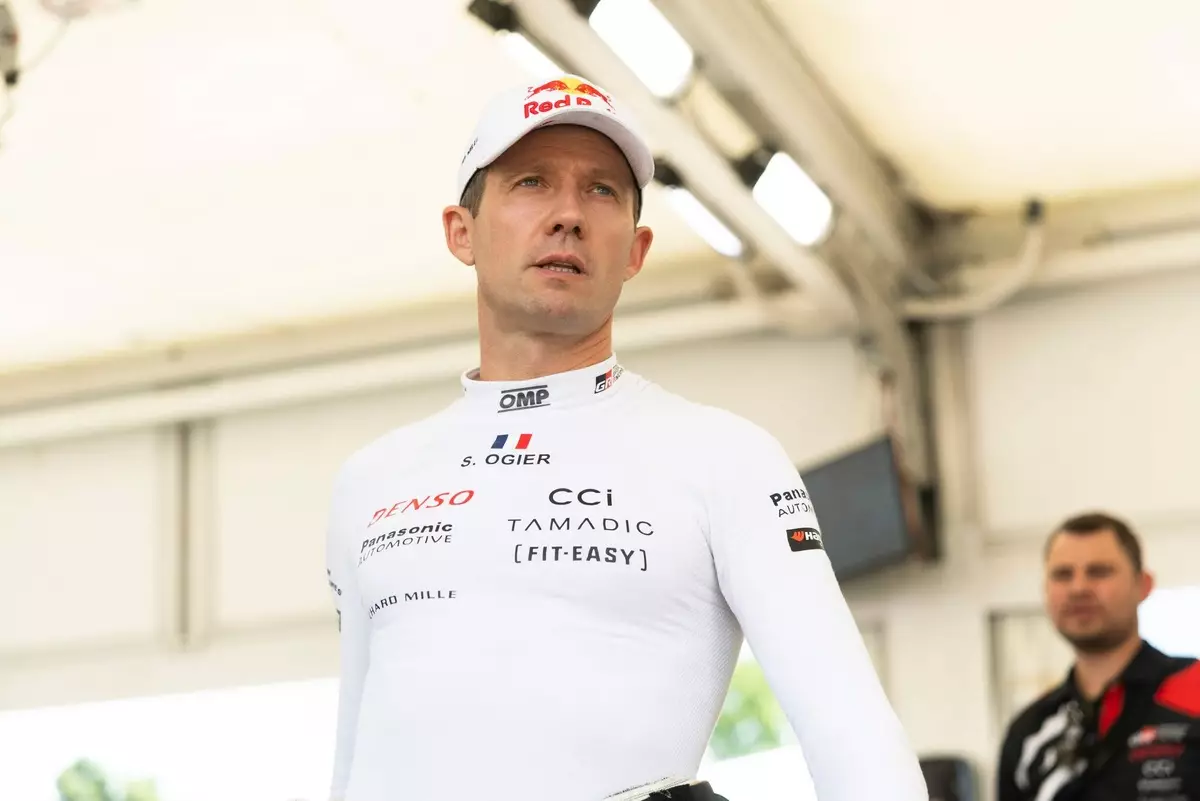Sebastien Ogier’s current strategic approach in the World Rally Championship (WRC) offers a compelling case study in leadership and calculated risk-taking. Despite competing in only select events, Ogier’s remarkable performance—three wins and two second places in just five rallies—has positioned him at a competitive threshold. His success raises provocative questions about the efficacy of focusing on certain events rather than a full-season assault. While some may view this as a gamble, Ogier exemplifies a mastery of selective participation that leverages experience, skill, and tactical planning to maximize points and impact the championship standings. His ability to maintain an average of 28 points per rally while missing three events suggests a different philosophy: quality over quantity can be a winning formula, especially when guided by the wisdom accumulated over a storied career.
The Ambiguity of Championship Pursuit
Although Ogier publicly downplays the pursuit of a ninth world title, his recent performances—closely trailing leader Ott Tanak—indicate that the possibility remains palpable. His comments underscore a pragmatic outlook: priorities lean towards team support rather than personal conquest. Yet, beneath this outward modesty lies a latent competitive fire stirred by the exceptional consistency he’s demonstrated. Ogier’s near-miss at the 21-point mark, coupled with the ability to remain within striking distance despite limited starts, reflects a nuanced understanding of the sport’s complexities. His stance illustrates a balancing act—prioritizing team objectives while subtly hinting that if circumstances align favorably, a late-season bid could become irresistible. This complexity adds layers to his strategy, embodying a leader who is simultaneously a team player and an opportunist awaiting the right moment.
Responding to Shifting Dynamics in Toyota’s Strategy
Ogier’s role within Toyota’s broader campaign reveals an intriguing dynamic. The French driver’s decision to sit out Rally Estonia, replaced by Oliver Solberg’s dominant performance, demonstrates Toyota’s flexible approach to maximizing its championship prospects. Ogier’s acknowledgment that he is testing new set-ups inspired by Solberg’s Estonia results shows a team assured of its adaptability and willingness to experiment. His willingness to evolve and explore different vehicle configurations highlights a mature understanding that success in WRC is multifaceted—driven not only by driver skill but also by technological fine-tuning. This adaptive mindset positions Ogier not just as a seasoned competitor but as an integral part of a leading team actively shaping its strategy for both individual and manufacturers’ championships.
The Future’s Landscape: More Rallies or a Fading Dream?
Ogier’s contemplation of contesting additional events indicates a potential shift in his involvement level. If his current trajectory of high performance persists, a full or semi-full campaign might become appealing, especially if proximity to the championship lead remains tight. His remarks about “carrying on at this level” suggest a pragmatic assessment—maximizing his impact while safeguarding his interests and those of Toyota. Yet, his expressed intent to remain “cool-headed” underscores a strategic patience, avoiding rash decisions that might undercut his legendary stature. Whether he pursues more rallies depends on how well he maintains his current form and his willingness to extend his competitive edge beyond a partial season. Ogier’s mindset demonstrates that in motorsport, timing and adaptability are just as vital as raw talent, and he appears ready to capitalize on both whenever the moment is right.
The Power of Experience and Tactical Wisdom
At the core of Ogier’s approach lies the invaluable asset of experience. Having secured eight world championships, Ogier’s insights into rallying transcend mere speed; they encompass mental resilience, strategic acumen, and a deep understanding of vehicle dynamics. His ability to navigate the delicate balance between supporting his team and pursuing individual accolades reflects a maturation that few in his sport can match. His comments about testing and exploring new setups reveal a driver who learns and evolves with each rally, bringing a calculated intelligence to a sport often characterized by chaos and volatility. Ogier’s approach demonstrates that success in WRC is not solely about winning every event but about optimizing performance across a series of challenges—an insight rooted in decades of high-level competition.
By critically reflecting on Ogier’s current stance and actions, it becomes clear that he is redefining what it means to be a champion in the modern era. Not merely content with legacy-building through relentless full-season campaigns, he is embracing a strategic flexibility that could reshape notions of success in rallying. Ogier’s journey offers powerful lessons: adaptability, patience, and the relentless pursuit of excellence can sometimes surpass mere consistency when timed right. His evolving story challenges the conventional wisdom in motorsport, suggesting that the best racers are those who know when to push forward and when to hold back—a nuanced dance that Ogier is orchestrating masterfully.


Leave a Reply